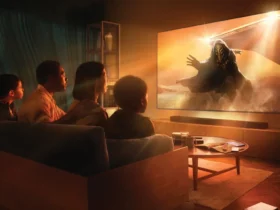In a very recent article we noticed how artificial intelligence, in recent times, is making people talk about itself from different perspectives.
Meanwhile, for the sensational possibility, which brings with it enormous moral questions, that ai is endowed with conscience. An issue that, we recall, led to the dismissal of Google engineer Black Lamoine, who declared an artificial intelligence sentient.
Then there is the new Meta chatbot that has scrambled the company that created it, and that of Google which – integrated into a robotic interface – serves snacks to the engineers. But also made in Italy bartender robots capable of predicting customer requests.
Not to mention robots able to become aware of their physicality after only three hours of training.
E now, artificial intelligence has also forcefully set foot in the world of cinema. Let’s see how.
Artificial intelligence and movies
A few hours ago there are two news items that are somewhat similar to each other, which see precisely an original and advanced use of AI.
In one case, the AI even wrote a movie. In the other, he removed swear words from a film to make it accessible to a wider audience.
Let’s find out in more detail what happened.
Surplus Intelligence
The animated film is titled Surplus Intelligence, was conceived by the Chinese artist Miao Ying and contains several topical themes.
In summary, a cockroach falls in love with an artificial intelligence that has to monitor its behavior. But the AI has committed a crime, and so the cockroach sets off to mine bitcoin and save the artificial intelligence.
If the Surplus Intelligence storyline didn’t seem too linear, don’t worry. Not surprisingly, we said that the film was conceived, but not written, by Miao Ying.
Artificial intelligence writes a movie
In fact, for the writing of Surplus Intelligence Miao Ying made use of a curious collaboration: that of the Gpt-3 text generation system, which even wrote the script.
The animated film lasts half an hour and is on display until the end of the year at the Asia Society in New York, within the Mirror Image: A Transformation of Chinese Identity exhibition.
Miao Ying tells the genesis of the film
Miao Ying is a 37-year-old from Shanghai who lives between his hometown and New York.
Like other artists of his age, he is attentive to the aesthetics of the Internet and video games. Interviewed by Wired US, Miao Ying explained the birth of Surplus Intelligence.
Miao said: “I didn’t change what the artificial intelligence wrote. In the beginning Gpt-3 generated a short story. We broke it down into parts and repurposed it to Gpt-3 in order to expand it, thus generating the film’s chapters, and selected what made the most sense from numerous variations. Once I got the script, I made the images.
Although it is not possible to write a long and exhaustive text with Gpt-3, it seems to me that at this moment we are in an optimal position. What he writes is interesting enough not to be too mundane, but it’s still a little out of place. However, I believe Gpt-3 is evolving very fast. When I started working with its predecessor in 2019, Gpt-2 was still unable to write a coherent story. It took him only two years to become very advanced. I believe a lot of product reviews are written by AI. “
The artificial intelligence that censors a film
The second story that links artificial intelligence to a film concerns the deepfake.
We have already talked about the subject in another article. Deepfake is an artificial intelligence-based image synthesis technique. In the specific cinematographic field, we said in the article, the deepfake could have been used for dubbed films, with the aim of making what was said by the voice actors coincide with the lips of the actors.
But here it is, for the release of the film Fall in the United States, deepfake played a role, so to speak, censorship. In fact, by intervening digitally with a sort of facial editing, various swear words were removed from the film (for the most curious, “fuck” and variants appeared about 30 times). Consequently, of course, the bad words have also been removed from the sound.
The operation allowed Fall to pass the censorship unscathed, and to be considered a film for almost everyone. Initially, in fact, the film was classified as R, that is, forbidden to minors under the age of 17 unaccompanied by an adult.
After the retouching thanks to the deepfake, the classification passed to Pg-13: viewing recommended with an adult for children under 13.















Leave a Reply
View Comments